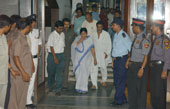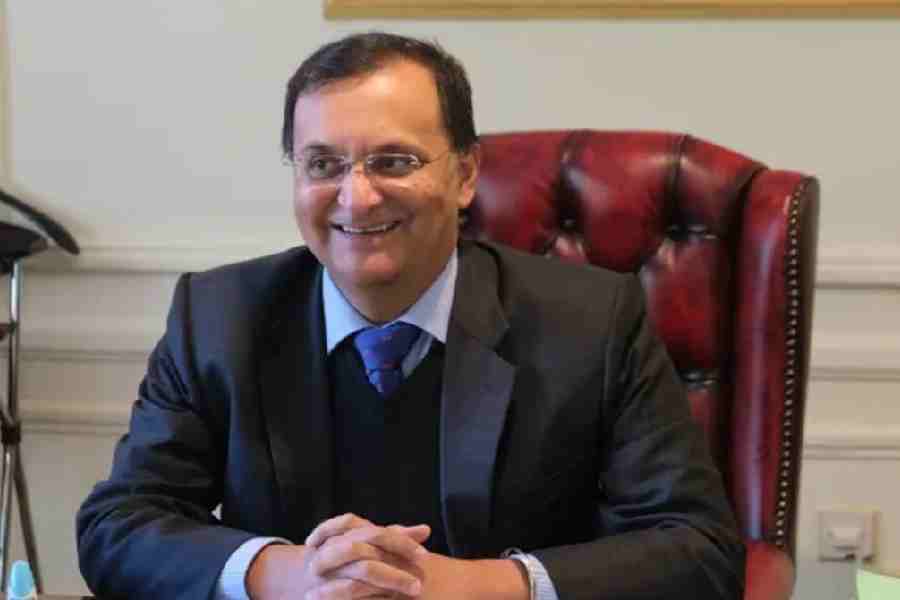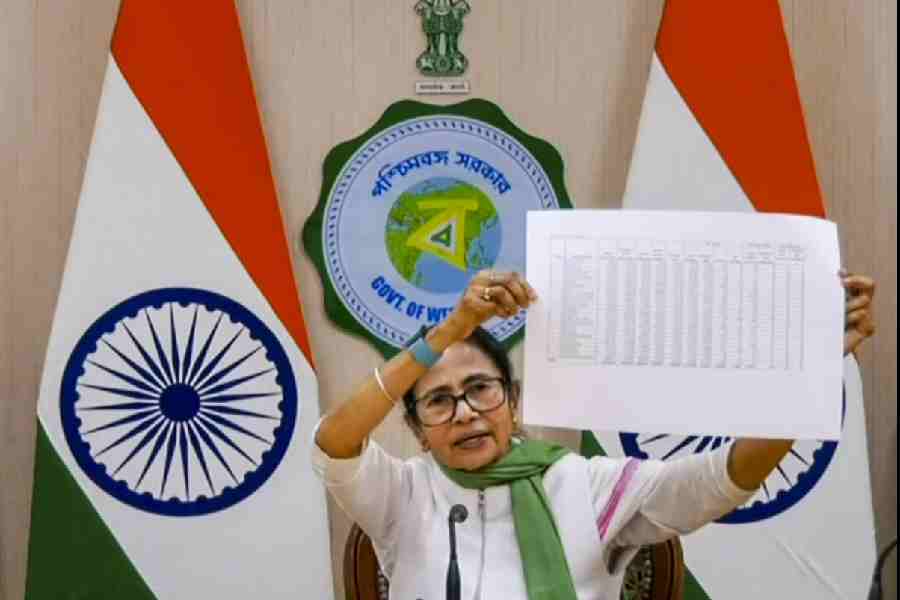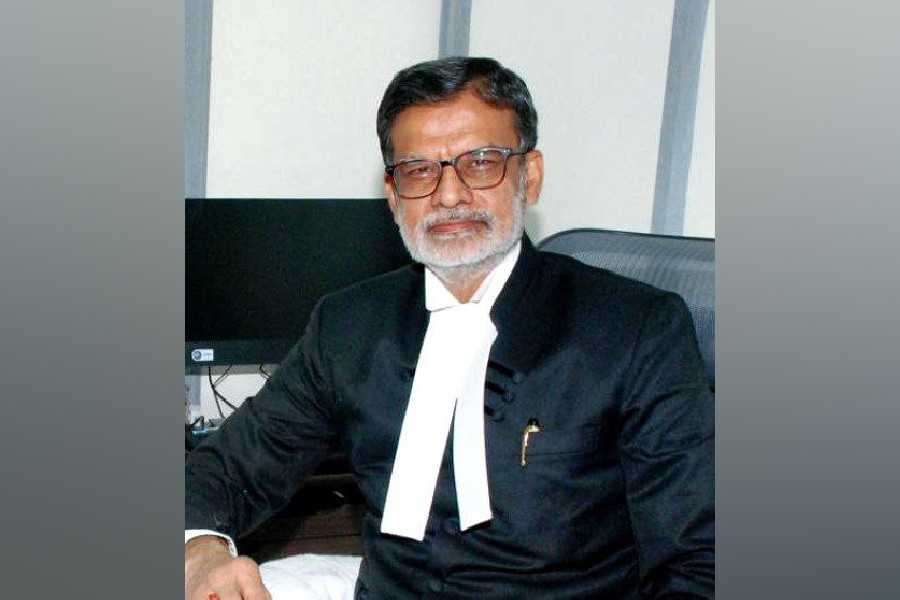 |
| Trinamul Congress leader Mamata Banerjee after paying her condolence at the hospital on Sunday evening. Picture by Pabitra Das |
He did not have the mass appeal of Jyoti Basu, Buddhadeb Bhattacharjee or even some lesser CPM leaders. But, sitting in his small cubicle or in the secretariat room in the CPM office on Alimuddin Street, Anil Biswas presided over the party?s vast and complex network.
At 62 (he shared his birthday ? March 1, 1944 ? with chief minister Bhattacharjee), he was the quintessential organisation man, who kept his cool ? and his counsel ? in the face of dramatic changes and new challenges.
His political grooming came, as it did for most Bengali communists of his generation, in the students? movement of the early 1960s. The organisational skills, though, were a legacy of Promode Dasgupta, the Stalinist secretary who controlled the party?s reins until his death in Beijing in the winter of 1982.
During the tenures of Saroj Mukherjee and Sailen Dasgupta the ?PDG boys?, as the younger leaders like Biswas, Bhattacharjee and Biman Bose came to be known, gradually learnt their lessons in building and managing the party.
The most low-profile of the younger leaders, Biswas proved to be the one with the right attributes for the top organisational job. But these leaders were very different from an earlier generation of Left politicians in Bengal, many of whom, like Jyoti Basu, Indrajit Gupta or Mohit Sen, came from upper middle-class and even affluent families and were drawn to communism during their student days in England.
PDG represented a drama-tic change from that profile. Communist leaders would thereafter be increasingly from the lower strata of Bengali society. It was a change that was reflected in other parties as well.
Biswas took over the reins of the Bengal party at a crucial time in 1998, when it was still debating whether its decision not to join the United Front government at the Centre in 1996 was correct. Basu had called that decision a ?historic blunder?.
The party held its congress in Calcutta in the year Biswas became the Bengal unit secretary and the issue was put to vote once again. So, he inherited a party divided on joining the central government and played the most important role in Bengal to unite different shades of opinion.
When the CPM revised its party programme in 1999, 35 years after it was born, Biswas was in the five-member ?programme commission? along with Jyoti Basu, Harkishen Singh Surjeet, Sitaram Yechury and P. Ramchandran.
Biswas?s tenure had two contrary effects. He tied many loose ends in the organisation and generally improved its efficiency, especially of the party?s election machinery.
At the same time, he presided over a process in which the party promoted mediocrity in the name of democratisation of institutions. In fact, Biswas, promoted a party culture that was deeply suspicious of intellectualism that had long been the pride of Bengalis.











